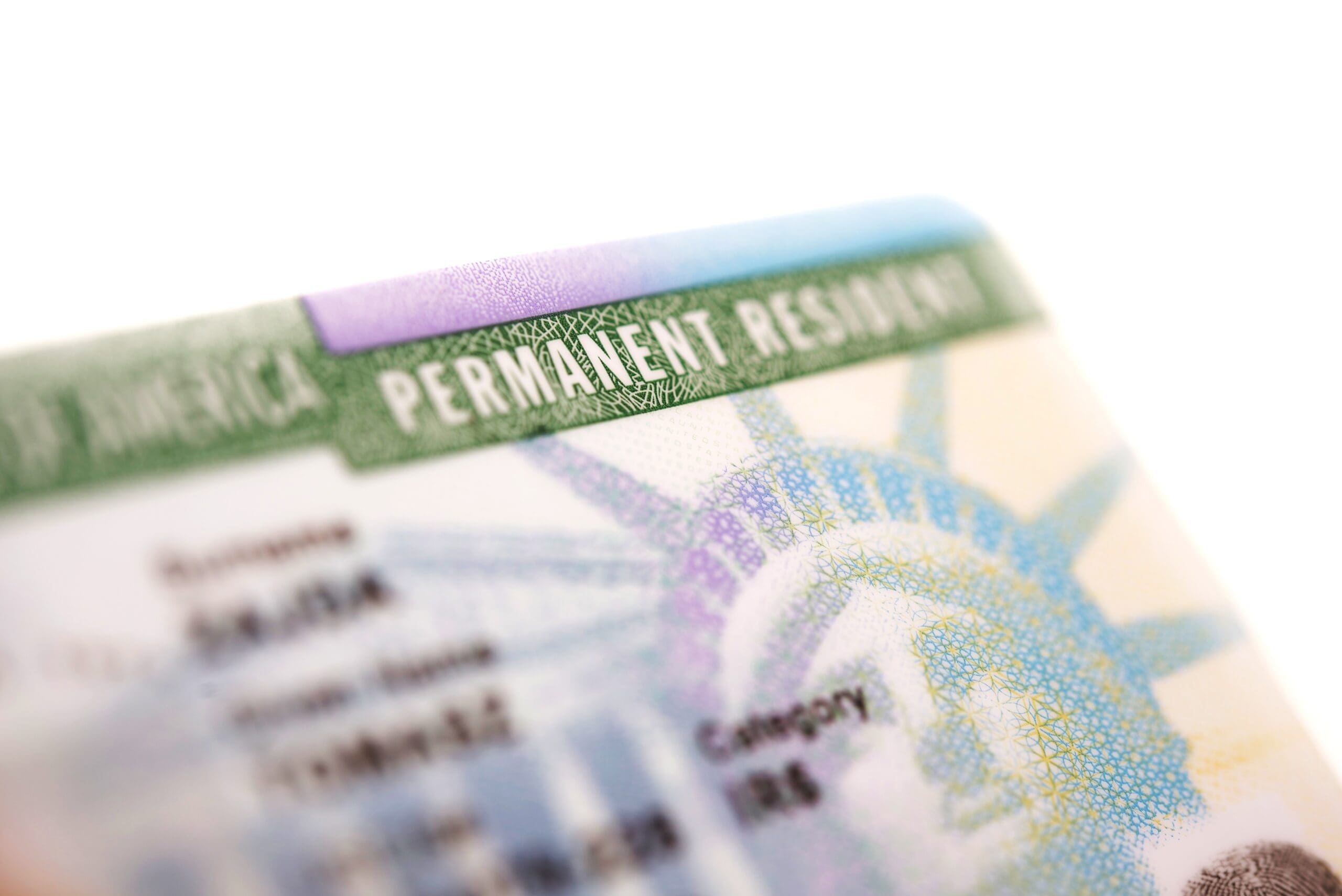
If you receive a Notice to Appear which tells you that you’re being deported, all is not lost. You may still be able to remain in the United States if you meet certain criteria.
This will require you to make a “cancellation of removal” defense during your deportation court hearing. One way to do this, of course, is to prove that you’re a legal permanent resident of the United States and so are ineligible for deportation.
But if you are not a legal permanent resident, there are two potential forms of cancellation relief you can apply for.
Non-LPR Cancellation of Removal
This is the most common form of relief. You can take advantage of it if:
You’ve been physically present in the United States for at least ten years, and you acquired all ten of those years before you were served with your Notice to Appear.
You’ve had no absences from the country lasting longer than 90 days.
The total number of absences that you’ve taken from the country have never exceeded 180 days in any 10 year period.
You meet all of USCIS’ requirements for good moral character.
You’ve never acquired a criminal record.
You’re capable of demonstrating that deportation would cause “exceptional and extremely unusual hardship to a legal permanent resident or United States citizen who is your spouse, child, or parent.
You’re ineligible for this form of relief if:
You’ve already received a cancellation of removal in the past, or a suspension of deportation.
You’ve already received INA relief in the past.
You’re considered a terrorist.
You’re known to have persecuted others.
You agree to voluntary departure after being informed you had the right to a court hearing.
If you were not informed, and agreed to voluntary removal, then you can still use the defense.
You left the country under threat of deportation, regardless of length of absence, even if you never knew about the order.
You’ll need to provide evidence that you meet the requirements. This evidence can include:
Medical records
Leases
School records
Photographs in front of recognizable, US-based places
Bank records
Affidavits (written statements) from friends, family members, neighbors, etc.
Proving undue hardship is much harder than proving continuous presence. This usually requires a firm combination of evidence and keen strategic guidance on the part of your immigration lawyer.
VAWA Cancellation of Removal
Thanks to the Violence Against Women Act there is another form of cancellation of removal. If you are the spouse or child of a legal permanent resident or US Citizen who committed domestic violence against you then you may be eligible for cancellation of removal if:
You’ve had 3 years of continuous presence in the country.
No absence has exceeded 90 days.
Your immigration status is the only reason you could be deported. You have no criminal record.
Being forced to leave would cause extreme hardship either to you, your child, or your parent.
You’d have to provide all the same evidence you would provide for the non-LPR cancellation of removal, but you’d also have to provide evidence that you’re a victim of domestic violence. This could include police reports, medical records, and witness testimony.
While it may seem like a VAWA cancellation of removal is easier you should keep in mind that this form of relief is always at a judge’s discretion. This means you could provide airtight proof that you meet every requirement and still be denied. Making sure your case is as strong as possible by working with a qualified immigration lawyer will help.
Getting Your Green Card
If you qualify for either form of relief you won’t just be allowed to stay in the country. You’ll receive a green card, which means you should never have to be worried about removal again.
But if you’ve received a Notice to Appear, you need to act fast. Call our office to set up a consultation today.
See also:
What is Family Immigration and Who is Eligible?
Claiming Asylum
Temporary Protection Status

The Supreme Court has announced they will rule on the constitutionality of the Trump Administration’s attempts to end DACA. The case is scheduled for the next term, which starts in October of 2019.
Three federal district judges have already ruled against Trump, allowing DACA renewals to proceed. But the Trump administration, who argues Obama overstepped his authority by creating the DACA program, may have an ace in the hole. The Supreme Court currently has a conservative majority.
See also: Supreme Court Makes Life Perilous for Immigrants With Criminal Records.
In the meantime, there are 700,000 Dreamers who need to figure out how to respond.
If you need a renewal, apply now.
If you can get your renewal processed before October of 2019 you will at least buy two more years of time to figure out what to do. If you wait, the ability to pursue a renewal may well disappear.
Check your status and the key dates attached to that status so you aren’t caught by surprise. And if you have put in a renewal application check on the status of that application regularly. USCIS does not have to provide you with any notice of a denial, nor do they have to provide a reason for the denial.
See also: 4 Steps for a Smoother Immigration Process.
Consider other options.
Some 15% of the Dreamer population can solve their citizenship problems by pursuing a different type of visa. Some of these visas offer a better road to citizenship than the Dreamer program does.
These include U-Visas for certain crime victims, T-Visas for trafficking victims, VAWA visas for victims of domestic violence, and asylum visas. It also includes Special Immigration Status for neglected or abused juveniles.
Dreamers may also have family members who can get them in on a family-based Visa.
Active duty members of the military, reservists, and veterans, as well as their spouses and children, may apply for a “parole in place” benefit that offers more time to adjust their status.
If you are currently working and fall into one of four distinct categories your employer may be able to sponsor you. Your work visa can be a path to permanent residency.
Get help now.
If you don’t fall into one of the above-mentioned categories then you need to act now to figure out how you might preserve your status. While deporting Dreamers may not be one of the administration’s priorities, the loss of status will mean losing the right to work, get a driver’s license, or study in the United States.
You need advice and you need it now. It would be great if the Supreme Court agrees with the federal district courts, but you can’t bank on it.

If you’re determined to immigrate to the United States in spite of the current administration’s stance, you’re going to need a game plan. As reported by Fortune, getting into the country and gaining the right to stay is harder than ever.
“2 years into the Trump presidency, applicants are sitting for more interviews and submitting more paperwork, while the denial rate steadily rises.”
The rejection rate is well into the 80% range. Whether you’re already here and are trying to renew a visa or are on your way, it’s a good idea to take some steps that increase your chances of making it into the remaining 20% of people who are still getting their applications approved.
1. Bring your patience.
USCIS is notorious for its slowness. The courts are backlogged. The entire process takes time.
Depending on the Visa type you’re looking for, your country of origin, and your skills, the process could take anywhere from months to years.
Any anxiety you’re suffering from this could make the process seem even harder than it already is. Set your expectations and stay as calm as you can, even if you’re facing dire circumstances. It will help you do better in interviews, too.
2. Check your status often.
New USCIS rules allow them to deny applications without telling an applicant why. They don’t even have to inform applicants they’ve been denied. And if you don’t realize you’ve been denied, you could miss vital deadlines to correct problems with your application and resubmit, or appeal the decision.
It’s wise to stay on top of your case by checking its status online on a regular basis. The information will be available there, and you won’t have to rely on anyone deciding to send a letter they aren’t required to send.
3. Stay on top of key dates.
Filing deadlines, deadlines for leaving the country if your visa’s expired, deadlines for appealing decisions. The immigration process is highly deadline-driven.
Staying organized and ensuring you’re doing everything by the date required could mean the difference between an accepted application and a denied one.
4. Start the process with a great immigration lawyer.
It’s easier to get your application processed favorably if you have someone helping you every step of the way, start to finish. The Law Office of Kyce Siddiqi can help you avoid major mistakes and will advise you on the best path forward in light of your unique circumstances.
See also: 5 Times You Should Hire an NYC Immigration Attorney to Process Your Application.
Call today to set up an appointment.

There’s a big push to legalize marijuana in New York. But legalization is being slowed by questions about taxes and licensing. As well as questions about how much marijuana is too much.
Meanwhile, immigrants may find lighting up isn’t worth it, even in states where it’s legal either for medical or recreational purposes.
According to The Seattle Times, immigration officials are using marijuana purchases (buying or selling) as evidence that would-be immigrants “lack good moral character.”
“Good moral character” is one of the things you have to prove to get naturalized.
See also: Supreme Court Decision Makes Life Perilous for Immigrants With Criminal Records.
USCIS guidelines now suggest officials should block immigrants on their quest for citizenship if they’ve had anything to do with marijuana at all. And they’re doing it even in states where it’s legal. They may even reach deep into an immigrant’s past to look for evidence of marijuana use in an applicant’s home country.
Using marijuana, obtaining a green card, or working in the marijuana industry could all make it a lot harder to successfully navigate any immigration task, including obtaining or renewing visa.
See also: Can You Lose Your United States Citizenship?
USCIS stresses marijuana remains illegal at the federal level.
USCIS is issuing policy guidance in the USCIS Policy Manual to clarify that violations of federal controlled substance law, including violations involving marijuana, are generally a bar to establishing good moral character for naturalization, even where that conduct would not be an offense under state law. This policy guidance also clarifies that an applicant who is involved in certain marijuana-related activities may lack good moral character if found to have violated federal law, even if such activity has been decriminalized under applicable state laws.” –USCIS.
Lawmakers are moving to address marijuana at the federal level. In February of this year Senator Cory Booker (D-NJ) introduced the Marijuana Justice Bill, which would remove marijuana from the federal list of controlled substances. The bill called it a failed drug policy.
Legalization is worth watching, but it’s important not to treat it as a done deal. Once legalization is the law of the land at the state and federal level, USCIS policy should change. To stay on the safe side, you should avoid interacting with marijuana at all until all three of them have reversed the policy.
And if you have a prior record with marijuana in your home country investigators could find or prove, make sure your immigration lawyer knows about it. This gives your lawyer time to prepare a moral character defense that can help you win your naturalization case.
Do you need help? Is marijuana complicating your immigration case? Are you facing other complications?
Contact the Law Offices of Kyce Siddiqi today to get help.

They could have taken him directly after he served his jail time for his 2002 probation violation. But ICE agents didn’t show up at Eduardo Vega Padilla’s door until 16 years after the fact.
Why’d they show up at all? He’s in the United States legally and has been for over 50 years.
But the law says ICE should detain immigrants convicted of certain crimes for a deportation hearing after their release from prison. And as of March 19, 2019, the highest court in the land has issued a ruling that says they could have waited 50 more years to detain Padilla, and any other immigrant with a record, if they’d wanted to.
The crimes that could trigger a deportation include:
Multiple crimes of “moral turpitude.” This is a catch-all term which has no strict definition, other than “the crime was morally wrong.” Theoretically, almost any crime you could commit could fall under this umbrella.Almost any felony can trigger a deportation hearing. The official language is “aggravated” felony. There is a list, it’s a long one.Controlled substance violations.Firearms violations.
See also: Can You Lose Your United States Citizenship?
Many of the immigrants most at risk have committed minor, non-violent crimes.
Like having a little bit of marijuana in their possession. That was Monty Preap, one of the other immigrants in the case.
Denied so much as a bond hearing, immigrants detained under this new ruling could be held indefinitely.
40% will win their deportation hearings, when the courts can get around to them. The backlog ensures many people taken under this unfortunate ruling will have a long wait ahead of them.
See also: Student Visas Tougher Than Ever.
So in the face of all this frightening news, what action should you be taking?
If you know you’ve got a criminal record, especially for one of the above-mentioned crimes, you need to assume you could eventually be swept into a bad situation by this law, unless it gets overturned before they do.
This is unlikely, as you’ve basically become “low hanging fruit,” an easy target for ICE in an era where they’re arresting people in record numbers. They do not seem concerned by the massive backlog taking place in immigration courts.
See also: Current Immigration Climate and How to Handle an Encounter with ICE.
And while never knowing when that could be is extremely stressful, you can take some steps to prepare right now.
See also: Your Visa Renewal: What Steps Are Required to Continue Working in the US?
The biggest step? Contact the Law Office of Kyce Siddiqi for help. You have no right to a public defender in a deportation hearing because it is not a criminal case. You are less likely to win your case if you go into court alone. And if you are detained, you have the right to speak to your lawyer immediately, something that’s a lot easier to do if you’ve already got an experienced one on speed-dial.

















